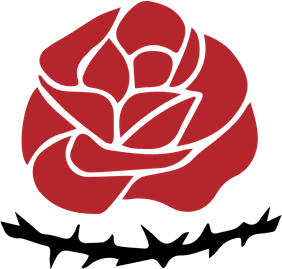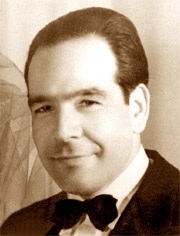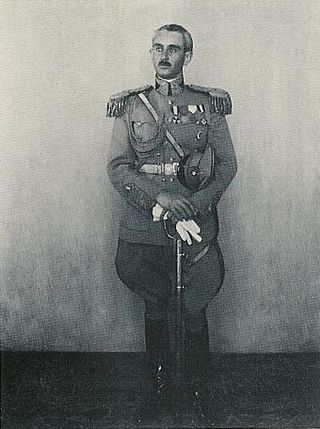
Mohammad Mosaddegh was an Iranian politician, author, and lawyer who served as the 30th Prime Minister of Iran from 1951 to 1953, elected by the 16th Majlis. He was a member of the Iranian parliament from 1923, and served through a contentious 1952 election into the 17th Iranian Majlis, until his government was overthrown in the 1953 Iran coup aided by the intelligence agencies of the United Kingdom (MI6) and the United States (CIA), led by Kermit Roosevelt Jr. His National Front was suppressed from the 1954 election.

The 1953 Iranian coup d'état, known in Iran as the 28 Mordad coup d'état, was the U.S.- and British-instigated, Iranian army-led overthrow of the democratically elected Prime Minister Mohammad Mosaddegh in favor of strengthening the autocratic rule of the shah, Mohammad Reza Pahlavi, on 19 August 1953, with the objectives being to protect British oil interests in Iran after its government refused to concede to western oil demands. It was instigated by the United States and the United Kingdom. This began a period of dissolution for Iranian democracy and society whose effects on civil rights are prevalent to this day.

Fazlollah Zahedi was an Iranian lieutenant general, statesman, and military strongman who replaced the Iranian Prime Minister Mohammad Mosaddegh through a coup d'état supported by the United States and the United Kingdom.

The Tudeh Party of Iran is an Iranian communist party. Formed in 1941, with Soleiman Mirza Eskandari as its head, it had considerable influence in its early years and played an important role during Mohammad Mosaddegh's campaign to nationalize the Anglo-Persian Oil Company and his term as prime minister. From the Iran crisis of 1946 onwards, Tudeh became a pro-Soviet organization and remained prepared to carry out the dictates of the Kremlin, even if it meant sacrificing Iranian political independence and sovereignty. The crackdown that followed the 1953 coup against Mosaddegh is said to have "destroyed" the party, although a remnant persisted. The party still exists but has remained much weaker as a result of its banning in Iran and mass arrests by the Islamic Republic in 1982, as well as the executions of political prisoners in 1988. Tudeh identified itself as the historical offshoot of the Communist Party of Persia.

Liberalism in Iran or Iranian liberalism is a political ideology that traces its beginnings to the 20th century.
The National Front of Iran is an opposition political organization in Iran. It was founded by Mohammad Mosaddegh in 1949, and it is the oldest and arguably the largest pro-democracy group operating inside Iran, despite having never been able to recover the prominence it had in the early 1950s.

The Pan-Iranist Party is an opposition political party in Iran that advocates pan-Iranism. The party is not registered and is technically banned, however it continues to operate inside Iran.

The National Socialist Workers Party of Iran, better known by its abbreviation SUMKA, was a Neo-Nazi party in Iran. The symbol of the party was a very simplified Faravahar, on their flag it appeared in a similar arrangement to the NSDAP flag.

Ali Razmara, also known as Haj Ali Razmara, was a military leader and prime minister of Iran.

Hossein Fatemi was an Iranian scholar. A close associate of Prime Minister Mohammad Mosaddegh, he proposed nationalization of Iranian oil and gas assets. Initially a journalist, he served as minister of foreign affairs from 1951 to 1953. After the 1953 coup d'état toppled the government of Mosaddegh, Fatemi was arrested, tortured, and convicted by a military court of "treason against the Shah", and executed by a firing squad.

Karim Bakhtiar Sanjabi was an Iranian politician, a member of The National Consultative Assembly. He was also a professor at Tehran University Law School and one of the leaders of Iran National Front and Iran Party. Sanjabi was also considered the Minister of Culture in the government of Mohammad Mosaddegh and the Minister of Foreign Affairs of Iran in the government of Mahdi Bazargan.

Hasan Arfa was an Iranian general and ambassador to the Pahlavi dynasty.

Mozzafar Baghai is known best as an Iranian political figure of the 1940s and 1950s. He rose to prominence during the national struggle against British control of Iran's oil industry. For decades, most Iranians had resented the Anglo-Iranian Oil Company for the perceived injustice of allocating most profits to the company and the British government, while only a very small proportion was given to Iran, despite the fact that the oil fields were on Iranian territory. Baghai made himself known as a fiery critic of the British and he allied himself with those of like mind, including Dr. Mohammad Mossadegh. He was different from many other nationalists in that he held very left-wing views. He was able to best articulate this when he formed the Toilers Party of the Iranian Nation, a left-wing, nationalistic and anti-communist party that included such notables as Khalil Maleki. In 1949, the Toilers Party joined with Mossadegh and his liberal supporters in forming the National Front of Iran, which was an umbrella organization for all Iranians who were committed to the principles of freeing Iran from foreign domination, ending arbitrary rule and establishing a government dependent on the will of the people of Iran. In April 1951, one month after the oil industry was nationalized by the Majlis, Mossadegh was chosen by that elected body as the Prime Minister of Iran, subject to approval by the reigning Mohammad Reza Shah.

Parliamentary elections were held in Iran in 1952 to elect the 17th Iranian Majlis.

The Imperial State of Iran, officially known in English as the Imperial State of Persia until 1935, and commonly referred to as Pahlavi Iran, was the Iranian state under the rule of the Pahlavi dynasty. The Pahlavi dynasty was created in 1925 and lasted until 1979, when it was ousted as part of the Islamic Revolution, which ended Iran's continuous monarchy and established the current Islamic Republic of Iran.

The nationalization of the Iranian oil industry resulted from a movement in the Iranian parliament (Majlis) to seize control of Iran's oil industry, which had been run by private companies, largely controlled by foreign interests. The legislation was passed on March 15, 1951, and was verified by the Majlis on March 17, 1951. The legislation led to the nationalization of the Anglo-Iranian Oil Company (AIOC) and the formation of the National Iranian Oil Company (NIOC). The movement was led by Mohammad Mosaddegh, a member of the Majlis for the National Front and future prime minister of Iran. The movement to nationalize the oil industry was the reaction to the following concessions made by Iran to foreign powers: the Reuter concession of 1872, proceeding letter,D'Arcy Concession?] the 1933 agreement between the Iranian government and AIOC, and the Gas-golshaian[?] contract. According to the political scientist Mark J. Gasiorowski, the oil nationalization movement had two major results: the establishment of a democratic government and the pursuit of Iranian national sovereignty.

The Iran Party is a socialist and nationalist party in Iran. Founded in 1941, it is described as the "backbone of the National Front", the leading umbrella organization of Iranian nationalists established in 1949. The party's total membership has never exceeded the several hundred figure.

Socialism in Iran or Iranian socialism is a political ideology that traces its beginnings to the 20th century and encompasses various political parties in the country. Iran experienced a short Third World Socialism period at the zenith of the Tudeh Party after the abdication of Reza Shah and his replacement by his son, Mohammad Reza Pahlavi. After failing to reach power, this form of third world socialism was replaced by Mosaddegh's populist, non-aligned Iranian nationalism of the National Front party as the main anti-monarchy force in Iran, reaching power (1949–1953), and it remained with that strength even in opposition until the rise of Islamism and the Iranian Revolution. The Tudehs have moved towards basic socialist communism since then.

Sayyid Hassan Emami was an Iranian Shia cleric and royalist politician. He worked as a judge in the Ministry of Justice and taught law at the University of Tehran.

Ali Zohari was an Iranian politician.
















